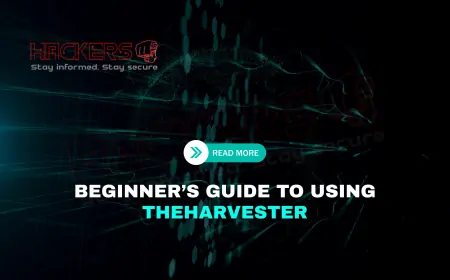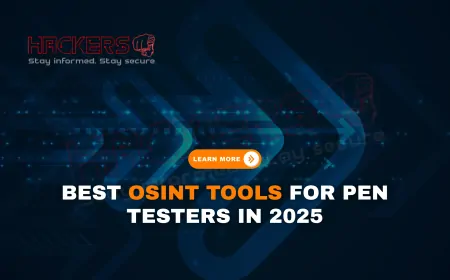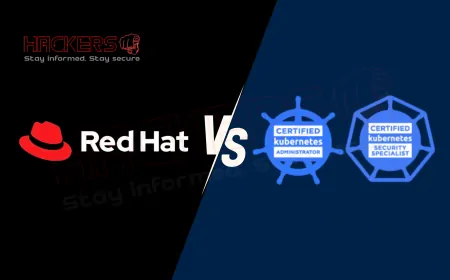What Real-World Skills Matter More Than Certifications in Cybersecurity
Picture this: You have a stack of certifications like CompTIA Security+ and CISSP on your resume, but during a job interview, the hiring manager asks how you handled a real crisis. You freeze. Certifications open doors, sure, but they are like tickets to the game. The real play happens with skills you build on the field. In cybersecurity, where threats change daily, employers crave people who can think, adapt, and act beyond textbook answers. I've coached dozens of pros who skipped fancy certs at first and landed roles through sheer grit and practical know-how. This post explores why soft and hands-on skills trump paper creds, with tips to cultivate them. If you're starting out or switching careers, read on to focus your energy right.

Table of Contents
- Why Skills Often Trump Certifications
- Problem-Solving: The Core Superpower
- Adaptability in a Fast-Changing Field
- Communication: Bridging Tech and People
- Ethical Thinking and Integrity
- Teamwork and Collaboration
- Hands-On Technical Skills
- Skills vs Certifications Comparison
- How to Build These Skills
- Conclusion
- Frequently Asked Questions
Why Skills Often Trump Certifications
Certifications prove you studied, but skills show you deliver. A 2023 survey by ISC2 found 70 percent of hiring managers value experience over certs. Why? Cyber attacks do not follow exam questions. Ransomware hits unpredictably, needing quick thinkers.
Certs expire or lag behind new threats like AI-driven hacks. Skills evolve with you. Employers see this in interviews: Can you explain a breach simply? Spot phishing in emails? These win jobs.
Real story: My friend Alex, a history major, got a analyst role without certs by demonstrating risk analysis from research papers. Certs help, but skills seal deals. Balance both, prioritize practice.
In entry roles, skills fill gaps. Seasoned pros say certs get interviews, skills get offers. Focus here for long-term success.
Problem-Solving: The Core Superpower
Cybersecurity is puzzles under pressure. A virus spreads; how do you stop it without breaking systems? Problem-solving means breaking issues into steps, testing ideas, learning from failures.
Develop it daily: Play logic games like Sudoku or analyze news breaches. Ask why a company fell victim, what could prevent it. In jobs, this isolates threats fast.
Example: During WannaCry attack, pros who improvised containment saved networks. Books like "Thinking, Fast and Slow" sharpen this. No cert teaches intuition from scraps.
Interviews test it with scenarios: "Server down, what next?" Practice on platforms like HackTheBox. It's about mindset: Curious, persistent, creative.
Expand: Join CTF events (capture the flag, friendly hacking games). Solve as team or solo. Builds lateral thinking, seeing angles attackers miss.
Adaptability in a Fast-Changing Field
Threats evolve hourly. Yesterday's firewall fails today against quantum computing risks. Adaptability means learning new tools quick, pivoting plans.
Cultivate by reading daily: Sites like Krebs on Security. Switch roles in projects; try coding one week, policy next.
Real world: COVID shifted remote work, spiking VPN attacks. Adaptable pros updated protocols overnight. Rigid cert-holders struggled.
Tips: Embrace failure; botched sim? Analyze why. Follow tech news podcasts. Flexibility beats rote knowledge.
More depth: Take varied courses on Coursera, from ethics to forensics. Volunteer for new tasks at work. This resilience handles burnout too, common in high-stakes fields.
Communication: Bridging Tech and People
Techies code defenses, but explaining to CEOs why budget needed? That's gold. Communication translates jargon: "Phishing" becomes "email tricks stealing logins."
Why matters: 90 percent breaches involve human error, per Verizon reports. Train staff, write reports, convince boards.
Build: Practice presentations, blog threats simply. Join Toastmasters. In teams, clear updates prevent mistakes.
Story: A consultant saved a firm by pitching security in business terms, ROI on tools. Certs did not teach that.
Expand: Listen actively, tailor messages. Non-verbal cues in meetings. Write incident summaries. This skill advances you to leadership.
Ethical Thinking and Integrity
Cyber pros hold keys to data kingdoms. Ethical thinking weighs actions: Hack back? Report all findings? Integrity builds trust.
Core in laws like GDPR, fines for mishandling. Develop via dilemmas: Case studies on Edward Snowden.
Employers probe: "Found vulnerability in client, what do?" Honesty wins.
Tips: Study codes from (ISC)². Role-play scenarios. In field, this prevents scandals, protects careers.
Deeper: Balance security vs privacy. Volunteer audits ethically. Long-term, ethical reps open doors.
Teamwork and Collaboration
No lone wolves; incidents need IT, legal, PR. Teamwork shares knowledge, divides loads.
Build: Group projects, Discord communities. Respect views, compromise.
Example: SolarWinds hack required cross-team response. Collaborative pros shone.
Soft skill amps: Emotional intelligence, feedback giving. Remote era, tools like Slack essential.
More: Mentor juniors, learn from seniors. Diversity in teams spots blind spots.
Hands-On Technical Skills
Beyond soft, practical tech: Use Wireshark (packet sniffer, views network traffic). Set up firewalls on home setups.
Why over certs: Hands-on fixes real issues. Learn Linux basics, free on Ubuntu.
Tools: Kali Linux for testing, VirtualBox for labs. Script simple automation in Python.
Practice: Bug bounties on HackerOne. Find flaws, earn cash, prove skills.
Expand: Forensics with Autopsy tool. Networking via Cisco packets. Start small, scale.
Skills vs Certifications Comparison
| Aspect | Real-World Skills | Certifications | Why Skills Win |
|---|---|---|---|
| Adaptation to Threats | Quick learning, improvisation | Static knowledge at test time | Threats evolve faster than syllabi |
| Interview Performance | Stories, demos | Listed acronyms | Shows application, not recall |
| Daily Job Execution | Problem-solving under pressure | Theory base | Handles unknowns |
| Team Integration | Communication, ethics | Individual achievement | Builds relations |
| Long-Term Growth | Continuous evolution | Renewal every 3 years | Fosters innovation |
| Cost to Acquire | Free projects, experience | Exams $300-500 | Accessible to all |
This table highlights balance, but skills edge in practice.
How to Build These Skills
Actionable steps:
- Daily reading: Blogs, news 30 mins.
- Projects: Home lab, contribute GitHub security repos.
- Communities: Reddit r/netsec, forums.
- Simulations: TryHackMe rooms.
- Feedback: Share work, iterate.
- Books: "Practical Malware Analysis."
- Volunteering: Nonprofits need help.
- Shadow pros: LinkedIn outreach.
- Track progress: Journal wins.
- Balance certs: Use as milestones.
Consistency key; 1 hour daily compounds. Network events build all.
Expand strategies: Set goals, weekly challenges. Courses like SANS free stuff. Measure by mock interviews.
Conclusion
Certifications shine on paper, but real-world skills light up careers in cybersecurity. Problem-solving, adaptability, communication, ethics, teamwork, and hands-on prowess handle the chaos certs can't predict. They've turned novices into experts, as stories show. Build them through practice, communities, reflection. Add certs later for boost. In this vital field, your ability to adapt and collaborate protects our digital lives. Start today: Pick one skill, dive in. The rewards? Job satisfaction, growth, impact. Stay hungry, stay secure.
Frequently Asked Questions
Do certifications have no value at all?
They do; validate basics, get past HR filters, but alone insufficient for excellence.
Which skill to focus first?
Problem-solving; foundation for all, practice with puzzles or case studies.
How to prove skills without experience?
Portfolio: GitHub projects, blog write-ups, CTF scores.
Soft skills really matter in tech field?
Yes, 85 percent breaches human-related; communication prevents them.
Best way to learn adaptability?
Expose to new tools weekly, follow evolving threats via news.
Hands-on without job?
Free labs: Virtual machines, online platforms like HackTheBox.
Ethics how tested in jobs?
Scenarios interviews, background checks ensure integrity.
Teamwork examples in cyber?
Red team vs blue team exercises, incident response drills.
Time to build these skills?
3-6 months consistent effort for basics, lifelong refinement.
Books for communication in cyber?
"The Phoenix Project," shows tech-business bridge.
Cert vs skill salary impact?
Skills drive promotions, add 20 percent more over time.
Women in cyber build skills how?
Groups like Women's Society of Cyberjutsu offer mentorship.
Adapt to AI threats?
Study ML basics, experiment tools like TensorFlow simply.
Mistakes overlooking skills?
Cert chasing burns out, ignore real threats understanding.
Measure problem-solving?
Solve riddles timed, review breaches independently.
Collaboration tools?
Slack, Jira for tracking, vital remote work.
Ethical dilemmas common?
Yes, data handling; guidelines like NIST help.
Hands-on risky legally?
Use sandboxes, own setups; avoid real networks without perm.
Advance with skills focus?
Yes, to CISO roles; vision plus execution.
Worth prioritizing skills?
Absolutely, sustains career amid tech shifts.
What's Your Reaction?










































































